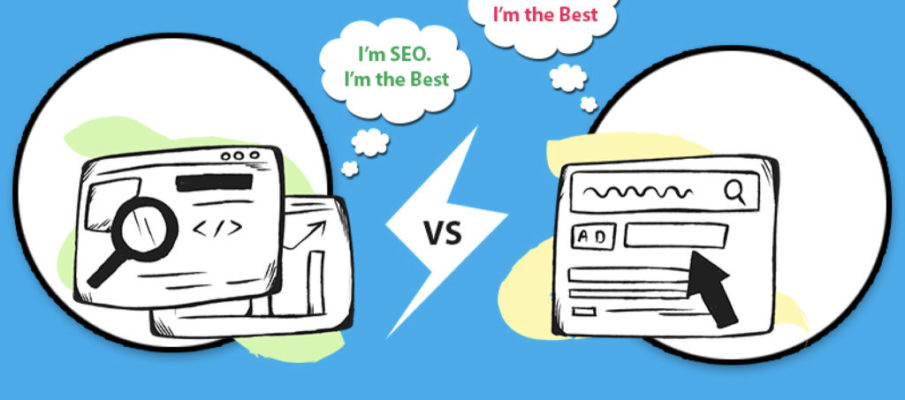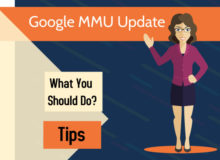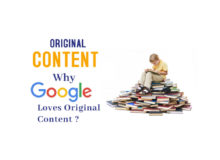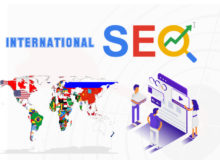Search Engine Optimisation(SEO) and Pay-Per-Click(PPC) are the two equally important concepts, which every digital marketing enthusiast must know inside-out.
Some say that organic marketing techniques unleash the firm footing of brand value, over time. While some argue that nothing can actually beat the power of money.
SEO vs PPC: the most controversial intellectual difference, existing among all digital marketing experts and opinion holders!
By highlighting the above argument; you can completely base your marketing module on popular search queries, keyword enriched contents, hashtags, alt texts, Crawler friendly codes, and ethical engagements.
Or, you can build your marketing portfolio off-of aggressive digital campaigns, high keyword bids, insights backed impression makings, and being a part of the vast display network.
Or why not use both, and get a synergistic effect?!
This post will try to look at some of the most interesting abilities, which both SEO and PPC have, that can turn your business and projects into a Gem Garden.
This article is written by keeping the most popular search engine-Google; most modern form of social media platform- Instagram(includes Facebook attributes); and most exceptional video streaming platform- Youtube; in the back drop.
All marketing techniques, described in this article, will be pertaining to the environment of the above mentioned Digital Marketing platforms.
So, let the Socratic method of discourse take place, on SEO vs PPC!
Search Engine Optimisation (SEO) – the true art of digital marketing!
The beauty lies in building a perfect website, by fuelling it up with contents; and making it reachable for people, by using the most conventional organic branding strategies.
SEO is all about making your website and online presence accustomed to the internet users’ behaviour.
It is like your website understands what people searches for, and what are their emotions; it is like making your business connect to the peoples’ demands, naturally.
Accomplishing SEO successfully, is not a piece of cake! It involves immense labour, time, and critical thinking, to come up with a highly optimised web presence.
SEO Fact Checks:-
- The web architecture is the chassis of good SEO
Your website means everything for your online presence.
The coding needs to be SEO friendly.
Priority must be given to the web crawlers, deployed by search engines to index your website and rank it.
The ‘robots.txt’ is to be used very carefully. You need to differentiate; between the content you want to make public, and those that you want to be hidden for privacy and other reasons.
If you wish to build your website’s popularity on SEO alone, then you have to follow SEO friendly Web Design techniques.
The sitemap and framework should be easy to navigate, for both the online traffic and Search Engine Crawlers.
- The Content is king; and is rich because of keywords!
Search Engine Optimisation lives and breeds on content.
Texts, embedded in HTML, is working the ‘behind-the-curtain’ charms. Search engine crawlers are the bees; they want honey!
And, your website will give the honey!
It goes like this: the crawlers scan your content and index the ‘focus key-phrases’. These key-phrases define the subject and genre of your website.
So, right when someone types a query on Google that connects to the information of your website; Google will suggest your website to that user.
Now, here is the take! Due to the rising numbers of websites, Google tries to show the public only those websites that outperform the others.
A website that uses the most relevant keywords, and has adequate information and relevancy, will be able to appear at the top of Search Engine Results Page (SERP).
- SEO helps your website gain ‘Progressive visibility’:
By optimising your website, you are making it appear as a ‘result’ for any query made by a certain person.
Your web content and meta data pull the audience’s attention. And, this process is organic; it happens naturally!
SEO gives your website visibility, by assuring that the website is relevant and appropriate for the web traffic.
When the process, of your website appearing in the correct search results, gets repeated; and when visitors start to pour into your website in numbers; your website’s value will rise and surpass other search results, falling in your website’s niche.
This process is what SEO experts define as ‘Progressive Visibility’. It’s an ongoing never ending phenomenon.
- SEO undergoes Social Media Optimisation(SMO) as well:
Your online presence is not justified unless you have social media channels.
Search Engine Optimisation and Social Media Optimisation go hand in hand.
Social Media gives you a lot more personalised approach to market your products and services. You can reach people based on their likes and follows.
You can create amazing posts, and engage people in real time.
To optimise your social media profiles and handles, you need to provide hashtags, right amount of captions, and tag the interested people in your posts.
In Organic SMO, you have to participate in other user’s posts and interactions. Optimisation is not only about attracting traffic, it’s also reaching out to your audience manually.
So, as a part of SMO, you will be commenting on other people’s posts, liking their content, and even resharing them.
That was an overall fact check of SEO. Now, let’s turn our eyes to PPC!
PPC- The Speedster of all Digital Marketing practices:
“Money beats soul every goddamn time”
… Jim Morrison
Pay Per Click is the fastest way to market your business in the world of internet.
SEO is good, but PPC is the bigger picture; undoubtedly.
Websites, Brands, and Businesses are spending millions, each day, to gain their online presence with the help of paid promotions.
Money is seriously a powerful weapon.
To be very honest, no matter how hard you implement your SEO techniques; you can still lag behind if your competitors are using all the correct PPC techniques.
PPC is just another name for Digital Paid Promotions. All these Ads you see, when you are surfing the internet, are all a result of PPC campaigns.
You see these Ads because the brands have become a part of the Google’s Display Network and Social Media Promotions.
In fact, there are brands and people who are ready to pay more than 1000 dollars a day on Google and Social Media Ads.
PPC Fact Checks:
- The boss of PPC is Google Ads:
Google was the populariser of Pay-per-Click marketing module.
If you want to run ads on internet, and get leads back to your website; then you have to sign up for Google Ads.
Google’s own Ad Display Network is huge, and gives enough freedom for a business to appear on Search results.
But, to break the ice early on, PPC campaigns are costly. You have to measure your profit margins and be very mathematical in determining the perfect campaign designs.
- You have to select and bid on keywords:
Keywords are again playing a pivotal role in PPC ads.
Unlike in SEO, here the keywords will function in the background. Here, crawlers have nothing to do with the keywords.
Instead, your keywords will only help Google to place your Ads in the correct places, based on the search queries of people.
So, you can say that if you are running a ‘Shoe Store’ and you want your ads to appear in search results for ‘Best Shocks in town’; you can very well do so.
However, you need to be very selective in adding the relevant keywords to your Ads. On top of that, you have to bid justified amounts on these keywords too.
Otherwise, your money will drain out very fast without actual results.
An Ad campaign going wrong, is the last thing you want to witness in Digital Marketing.
- PPC covers both Search Engine and Social Media Campaigns:
Instagram and Youtube are other two potential platforms for running paid promotions.
With so many Post features and Creativity quotients attached to these two, PPC only gets better.
On Instagram, you can easily create ads on the go! You will be getting to see real time insights, you can change campaign settings anytime you want, and you can focus your campaigns on narrowed down demographies.
Since Facebook acquired Instagram, the user base is only increasing. Many Digital Marketing experts argue that Social Media Campaigns show more potential than normal Google Ads.
There’s a solid reason to back this theory.
People use social media to create a personal space.
And if you can market your business by connecting with people, in their personal space, then you will establish an emotional attachment!
Youtube, on the other side, works in accordance with Google Ads. For running ads on Youtube, you have to create your campaigns on Google.
Nonetheless, your ads will be shown on both Youtube and Google Search results.
*Hence, in simple words, PPC is all about paying money to search engines and social media networks to advertise your business to an interested audience.
Because Google, and other social media platforms have their strong algorithms for displaying ads; PPC campaigns are truly the fastest mode of Digital Marketing.
SEO vs PPC; drawing the comparisons-
- SEO is slow and steady.
It will build your website’s presence in a very organised manner, and will therefore result in a continuous growth of web popularity, over time.
PPC marketing model is based on momentary upliftments of a certain website or business. As long as you are paying for your ads, they run! The day you stop paying, your ads will have no additional value unless they served as highly influential campaigns in the past. - SEO typically involves no monetary cost factors. But if you are taking help of SEO companies, then you have to pay for the services. The services will include content creation, organic promotions, social media postings, Guest blogging, and so on.
PPC model requires regular payments to be made to your ad account. Both Prepaid and Postpaid payment methods are available for Ad campaigns.
Costs are subject to Keyword bids, and Advertisement runtime.
- SEO uses the rules of ethical marketing.
It has nothing to do with push sales, traffic manipulation and forced views! But, some black hat SEO practitioners do use unethical techniques that violate the ethics.
Yet, you don’t have to worry if your SEO model is based on White Hat SEO ethics.
PPC is aggressive and can result in inappropriate campaign effects. This is evident from so many people skipping and disabling Ads all across the internet.
That’s why running a well researched Ad campaign is integral in PPC model.
Then, what to use? SEO or PPC?
It is recommended to use both the marketing models.
SEO builds your organic marketing portfolio. Not everything can be bought with money. No matter how hard money hits the market, human sentiment builds trust only on authentic identities.
Your website must have the capability to attract audiences naturally. Once it is able to do that, you can start to run PPC ads to boost your online presence.
You should not spend money blindly on Ads. If your goals are accomplished by SEO alone, then probably you will never need paid promotions.
Still, the right combination of SEO and PPC is the best digital marketing portfolio mix you should always aim for.
Important FAQs on SEO and PPC:
- How to research keywords?
Google’s very own Keyword research tool is excellent for researching the keywords required for your campaigns and content.
For using this tool, you have to sign up on Google Ads, setup your user profile and payment details. Once you enter Google Ads, you can find the keyword planner.
- How to run Google Ads?
You can create new campaigns on Google Ads, only after your sign up process is complete. For Display Ads, it is mandatory to have a landing page.
For youtube and video ads, using the video url for the ad is necessary.
- How long should the Ads be running?
It depends on how long you want the Ads to run, and how long you are ready to pay for the Ads.
If you exhaust your Google Ads balance, then the campaigns will automatically stop running.
You can even manually pause, stop, or delete an Ad campaign whenever you want.
- Is CPC and PPC the same?
CPC stands for Cost-Per-Click. It is the amount you have to pay when someone clicks on your Ad. CPC is the metric that determines how much your Ads cost.
PPC is Pay-Per-Click, and it represents the paid promotion marketing model.
To note: CPC and PPC are not synonyms.
- How to optimise media content?
Media contents are required to have meta descriptions, Alt texts, and transcripts for better SEO approval.
Crawlers can’t understand Media files. They need to have background texts, or readable keywords on display, for indexing the content.
Guess, you now have a decent idea on what marketing models should you be using. In the end, the verdict stands neutral on SEO vs PPC.
Both are stamped as equally productive and effective!






